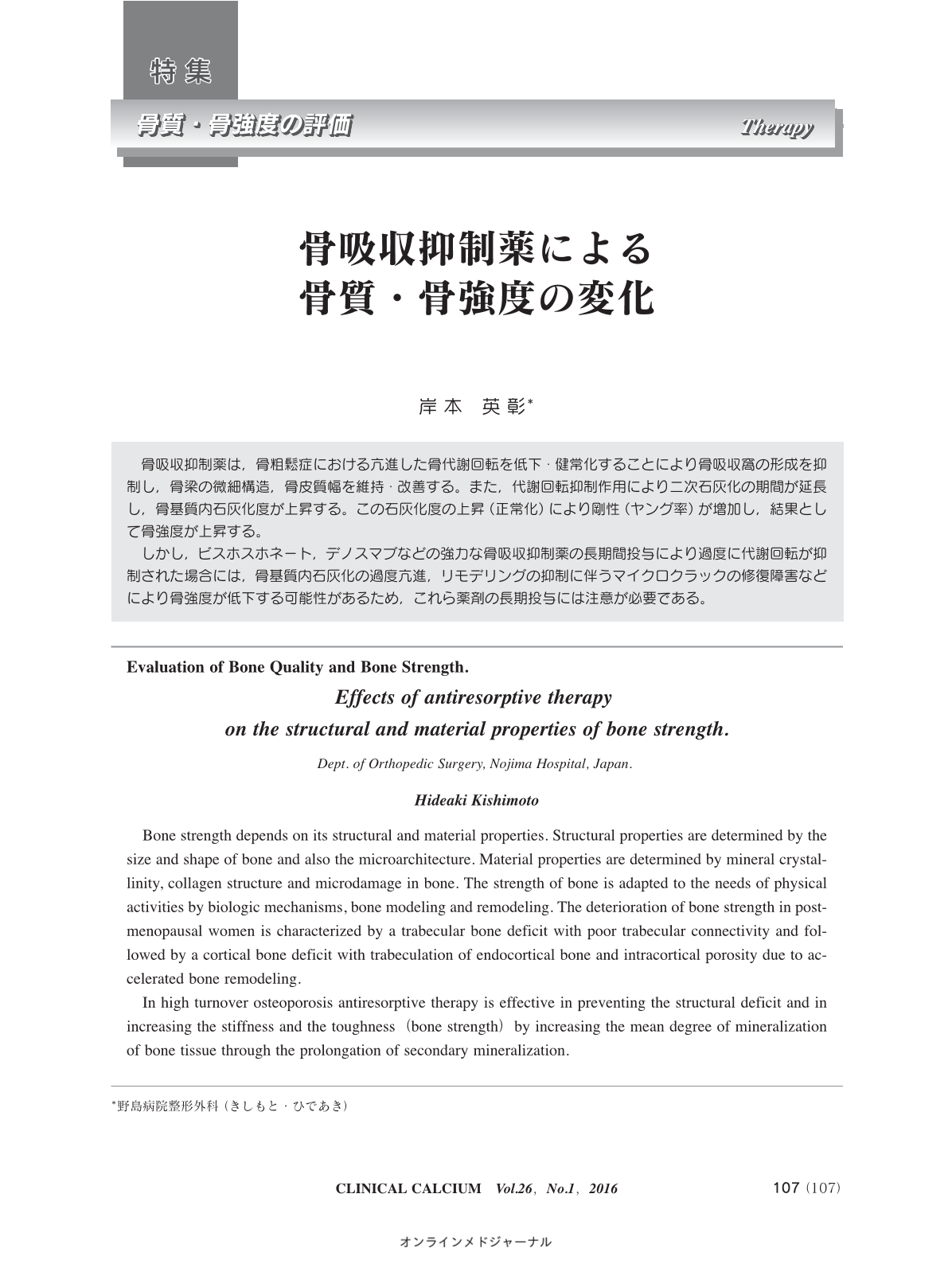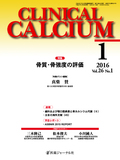Japanese
English
- 有料閲覧
- Abstract 文献概要
- 1ページ目 Look Inside
- 参考文献 Reference
骨吸収抑制薬は,骨粗鬆症における亢進した骨代謝回転を低下・健常化することにより骨吸収窩の形成を抑制し,骨梁の微細構造,骨皮質幅を維持・改善する。また,代謝回転抑制作用により二次石灰化の期間が延長し,骨基質内石灰化度が上昇する。この石灰化度の上昇(正常化)により剛性(ヤング率)が増加し,結果として骨強度が上昇する。 しかし,ビスホスホネート,デノスマブなどの強力な骨吸収抑制薬の長期間投与により過度に代謝回転が抑制された場合には,骨基質内石灰化の過度亢進,リモデリングの抑制に伴うマイクロクラックの修復障害などにより骨強度が低下する可能性があるため,これら薬剤の長期投与には注意が必要である。
Bone strength depends on its structural and material properties. Structural properties are determined by the size and shape of bone and also the microarchitecture. Material properties are determined by mineral crystallinity, collagen structure and microdamage in bone. The strength of bone is adapted to the needs of physical activities by biologic mechanisms, bone modeling and remodeling. The deterioration of bone strength in postmenopausal women is characterized by a trabecular bone deficit with poor trabecular connectivity and followed by a cortical bone deficit with trabeculation of endocortical bone and intracortical porosity due to accelerated bone remodeling. In high turnover osteoporosis antiresorptive therapy is effective in preventing the structural deficit and in increasing the stiffness and the toughness(bone strength)by increasing the mean degree of mineralization of bone tissue through the prolongation of secondary mineralization. But the long-term use of strong antiresorber, i.e. bisphosphonate or denosumab, would result in highly mineralized bone and disturbed repair of microcracks by inhibition of bone remodeling. Intermittent use or discontinuation of strong antiresorber after about 3-5 years of administration could be recommended to avoid the deterioration of bone strength.



